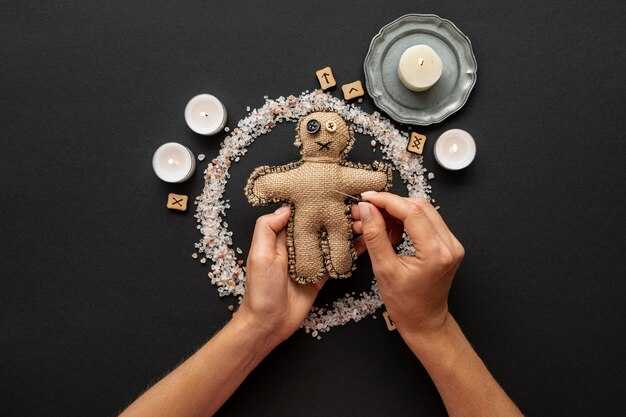There are two especially damaging ways that self-centered parents can shape how you relate to others: first, by not taking an interest in or supporting the distinct little person you were; and second, by failing to teach you how to notice mistreatment and to refuse it. If that happened in your family, you may find friendships difficult to form and keep. When you do make a friend, you might put up with awful behavior, convince yourself you must conceal how much it hurts, and—because of that—miss clear signs that the other person is toxic and you need to get away. Your trauma will often whisper that the problem is you.
One letter I received is from a woman I’ll call Renette. She writes: hello crappy childhood fairy—I need advice about the guilt and shame I feel after a friendship ended. I met Ethan through a mutual friend and we clicked: he was interesting, kind, artistic, and we became close during the pandemic, speaking on the phone at least once a week. (I’ll mark things to return to—so much about pandemic habits got baked into our routines.) Once restrictions eased, I visited him several times and even stayed with his family at their lake house; I loved being welcomed and included in family events because I don’t have a close family. After about a year and a half, Ethan grew distant. I told him I felt our friendship was fading, but he barely replied. He began missing calls and texts or answering only sporadically—a huge shift from before, when he would always get back to me. I decided to give him space and stop initiating contact. Yet he kept reaching out, and when we did speak he became passive-aggressive: telling me topics I raised were annoying, or to stop bringing up certain things. He said cruel things about the friend who introduced us, which made conversations awkward and left me anxious; it looked like he disliked me, but he continued interacting anyway. In hindsight I see he probably stayed because I’m easygoing and used to being dismissed, accepting hurtful remarks without protest. I know now I should have set boundaries, but I didn’t—I didn’t want to lose the friend, and I have trouble feeling how angry I am, so I often don’t notice when I’m upset.
One day he texted a snide remark about my texting style. I mustered the courage to ask whether he was mad and what was going on. He sounded surprised, said he loved me and everything was fine, and a week later we spoke and he seemed normal again. I felt proud of myself for being “assertive” by asking him about his behavior. Later he invited me to his birthday, and although I thought things were back to normal, that night he again shut down my attempts to converse, called things I said stupid, and at a bar completely ignored me—then moved to another table to talk to other people. When I finally confronted him late that night and started screaming at him about his treatment, the bartender told me to stop and some patrons scolded me for the way I spoke to him. Ethan and I left; I drove home. The next day I texted an apology and even apologized on Facebook to the bar. I learned he had blocked me, so I assumed he’d also blocked my number. Now I feel overwhelmed with guilt and shame for yelling, even though I know he’d been unkind. I’m struggling to move on.
Here’s the situation in plain terms: his treatment was cruel and manipulative—he eroded you and then abandoned the friendship after using you—and that’s not acceptable. Still, it’s understandable you apologized: after an escalation in public, apologizing to the bar was responsible. But you also flipped into assuming you were fully at fault, which is a common pattern among people whose needs were not met in childhood. Yelling is not always wrong; sometimes expressing anger at being wronged is necessary—recovery can be messy, and we don’t always express ourselves perfectly. The core problem is not whether your apology was accepted; healing doesn’t require the other person to forgive you. You did your part by apologizing. His blocking you shows he didn’t want contact. There was something about him clinging to you and then resenting your presence; that likely had nothing to do with you. If you want to do honest self-checking, ask if you had covert romantic hopes or expectations—did you expect reciprocity because you gave so much? That can complicate how you interpret someone’s behavior. Ultimately, you’re having trouble letting go because of unprocessed trauma, shame, fear, and the nagging worry that there’s someone out there you hurt who now hates you. Let that go: let him hate you and run; he’s the one who behaved badly. You don’t need everyone’s approval.
What helped me and can help you: build a life full of joy and relationships with people who accept and understand you. You need friends who won’t flip personalities and use emotional abuse. Learn concrete friendship skills—practical, repeatable tools that help you make and maintain healthy connections. Emotional neglect in childhood often robs people of a solid sense of self; parents didn’t validate or learn who you were, so the hunger for recognition stays with you and later becomes a barrier, like a glass wall that separates you from others.
Another letter is from “Simone.” She’s 47, a singer and fiction writer who’s finally getting recognition after a late start in both fields. She grew up in an Eastern European household with a distant father, an overcontrolling mother who rejected her frequently, and a sister eight years older who bullied her. As a child who loved to sing, she irritated her sister, which led to secret bullying during long summer stretches at home. Her mother frequently dismissed or snapped at her, sometimes reacting fiercely to seemingly small things like overwatering a plant or being too shy to translate a tour guide’s words into English on vacation. Her mother would ignore her as she cried, clench her teeth in anger, and shout for hours; that abuse continued until Simone left home to marry. Now, although the mother does try to attend Simone’s concerts and book signings, her overall attitude hasn’t changed. That childhood abandonment and emotional unpredictability made Simone shy and passive among other creative people. She longs to belong to her crowd but feels excluded—she describes, for example, a rehearsal where a critic praised her book, people clapped, she tried to say a few words, and as she spoke others immediately diverted their attention and resumed chatting. That wounded her; she felt her news wasn’t interesting and that a “glass wall” separated her from everyone else. She wonders if she’s too sensitive.
The response: you deserve credit for your accomplishments, but your past does not have to define your future choices. It’s important to stop being fused to the story of what happened long ago; you must detach from that identity to move forward. Your sister’s bullying was about that sister, not about your singing. Your mother’s behavior likely reflected her own struggles—depression, frustration, lack of resources—which explains but does not excuse the way you were treated. One positive is that she shows up for your public successes; don’t dismiss that small act. Healing often changes our presence toward others and sometimes models a different way of being, though many people remain stuck. Your sense of worth will increasingly come from within—by pursuing your mission and the good you want to bring into the world—rather than from external validation. Achievements can’t substitute for missing childhood validation forever; many people who win acclaim still find those old hungers unmet.
Practical steps: stop letting the story be the whole story. Focus on warming up social skills, learning practical ways to connect, and finding places to process the sorrow of what you never received. Complex trauma can cause neural patterns that make connecting difficult; that’s not your fault, but it’s something you can work on. Build skills, make a plan for meeting people who share your interests (writers’ or musicians’ groups, creative communities, recovery or shared-goal organizations), and keep practicing. Grieve what you lacked, persist in creating a new landscape full of suitable friendships, and let go of relationships that force you to pretend to be “normal.” Supportive friends—those with emotional bandwidth who can laugh with you and empathize—will help the glass wall melt. Consider group programs (recovery, 12-step fellowships, creative groups) and membership communities that teach tools and offer practice with others doing the same work. People who grew up with trauma often feel most at ease with others who share similar struggles; such friendships can be healing initially, though over time their flaws become more apparent. The aim is to find relationships that help you practice healthier connection.
Another correspondent, “Bethany,” wonders whether she was overly judgmental and whether she should try to repair a long friendship. Her history with her friend Mem stretches back to high school, but after moving across the country and building a new life, they lost touch. Years later, when Bethany went through a divorce and then a toxic new relationship, they reconnected and talked almost daily. Bethany visited Mem about once a year and thought about moving closer, but financial limits meant she was careful about spending. On a recent visit, she noticed small instances that felt like Mem taking advantage: Mem’s younger sister paid for a fitness class for Bethany and Mem didn’t return the money; Mem slipped items into Bethany’s shopping cart despite being told Bethany was on a budget; Mem complained endlessly about other friends, sometimes in ways that made Bethany uncomfortable and made her feel hinted at or judged. Bethany also learned that Mem had cut ties with a longtime friend while staying friends with that friend’s ex-husband—behavior Bethany saw as betrayal. Over time these small dishonest and inconsiderate behaviors accumulated. When Bethany tried to communicate financial and personal boundaries, Mem twisted the conversation, accused Bethany of hurting her (e.g., complaining that Bethany didn’t invite her to a wedding that never happened), and often reframed Bethany’s concerns as aggression. When Bethany tried to be careful and gentle, Mem pretended not to understand, turned things around, and at one point threatened to end the friendship. Bethany asked for a break; they haven’t spoken since. She wonders whether she destroyed a valuable friendship by being judgmental, or whether Mem’s repeated disrespect showed the relationship was toxic and better ended.
The answer: focus on your own recovery and clarity. The behaviors you describe—dishonesty, taking advantage, boundary violations, intense complaining—are common in people with unresolved trauma or active addiction. As your own awareness grows, it’s normal to be bothered by behaviors you previously overlooked. You weren’t necessarily being unfair to notice them. Boundaries are meaningful only when they are enforced, not merely stated; sometimes a boundary is the action of leaving a situation you won’t accept. Friends who repeatedly turn your requests for fairness back on you or manipulate conversations aren’t respecting you. It’s tempting to search inward and blame yourself, but that won’t fix someone else’s pattern. You did try to communicate; she chose to misinterpret and weaponize your concerns. That demonstrates a pattern of poor boundary skills on her part. Recovery groups, therapy, and communities of people committed to healing can provide more constructive friendships than relationships that feed mutual misery. You have every right to set limits—even if you accept others as they are—because acceptance doesn’t mean putting up with exploitation. If a friend cannot hear boundaries or continues to gaslight, it’s valid to step back. Time in healthy groups will help you rebuild a network that supports your growth rather than draining it.
Finally, a letter from “Elena” describes a near six-year best friendship that began while studying abroad. Despite living in different countries later, they kept close daily contact and supported each other. Problems arose later: their lifestyles diverged—Elena is happily married, in therapy, and had a stable academic career she recently left for a new project; her friend, however, cheated on partners without accountability, became angry when confronted, portrayed herself as spiritually superior through yoga and meditation, and seemed more concerned with appearing attractive than being loyal to close female friends. Elena noticed the friend’s unreliability: when the friend traveled to Europe she often planned poorly and didn’t visit Elena, preferring people who could accommodate her last-minute whims. When Elena raised concerns—wanting reciprocal visits and dependable communication—the friend accused her of pressuring, called her impatient and explosive, and shut down, projecting her own trauma (a fatherless childhood and explosive mother) onto Elena. Elena is self-critical and prone to guilt, but she feels hurt when people are willing to travel to see others yet not her. The friend eventually stonewalled, gave long silent treatments interrupted by lazy replies, and, when told stonewalling is abusive, accused Elena of being the real stonewaller and of lacking softness. The friend gaslit Elena into thinking she had already apologized; eventually Elena gave up and ended the friendship. She wonders whether her insistence on talking through conflict is a warped expectation born of her own upbringing, where healthy communication was absent and conflict was avoided or exploded.
The response: many people have been in your shoes. From what you describe, the friend repeatedly behaved self-centeredly: cheating without remorse, being unreliable, nurturing a sense of superiority, projecting, stonewalling, and gaslighting. That pattern points to someone who either isn’t capable of reciprocal, accountable friendship right now—because of unresolved trauma, addictive or narcissistic tendencies—or simply doesn’t want to be that kind of friend. You did try to address the issues clearly and even offered options for repair or closure; she responded by dismissing you, refusing real engagement, and using projection and insults. A healthy friendship does allow for addressing pain and criticism, but only when both people have the emotional capacity and willingness for that work. You described that you’re never in the habit of disappearing without explanation, and you tried to keep a door open for repair—so you acted responsibly. Closure, though, isn’t always obtained through more conversation; sometimes it’s achieved by stopping contact and allowing yourself to grieve the loss. There is nothing wrong with wanting a friend who can handle conflict maturely, but you can’t force that on someone who refuses to change.
A few practical reflections: when you confront someone, the phrasing and tone matter—concerns can feel like shaming to others—so consider refining how you express worry, especially to people prone to shutting down. But that is not an excuse for others to weaponize or gaslight you. Distinguish between wants and needs: not every disappointment is a need you have the right to demand a friend fulfill. If you repeatedly told her what you needed and she rejected it, that is her answer. Also, be careful with ultimatums you don’t intend to carry through; a real boundary is what you will actually do if it’s crossed. For processing the resentment and anxious thoughts that linger after such friendships, techniques like daily written practices can help you move from ruminating into calm decision-making about how you want your life to look. Softness and humility can be cultivated over time: keeping a steady practice of self-compassion helps you notice where you’re hard on yourself or on others. In short, you were reasonable to expect reciprocity and accountability. Her repeated indifference, stonewalling, and projection are signs that the friendship wasn’t providing what you needed. Letting that relationship go opens space for healthier, more dependable connections—and that is a chance for healing and growth.


 Toxische Freundschaften erkennen und entkommen (4-Video-Kompilation)">
Toxische Freundschaften erkennen und entkommen (4-Video-Kompilation)">

 Der letzte grausame Trick, den Vermeider einsetzen, wenn Sie aufhören, sich zu kümmern (Er schneidet tief)">
Der letzte grausame Trick, den Vermeider einsetzen, wenn Sie aufhören, sich zu kümmern (Er schneidet tief)">
 LIEBE wird nicht genug sein, um Ihre Beziehung zu RETTEN!">
LIEBE wird nicht genug sein, um Ihre Beziehung zu RETTEN!">
 Beziehungen können nicht ohne DAS überleben">
Beziehungen können nicht ohne DAS überleben">
 Der genaue Preis, den Vermeider für den Verlust von Ihnen zahlen.">
Der genaue Preis, den Vermeider für den Verlust von Ihnen zahlen.">
 Wie man mit schwierigen und toxischen Menschen umgeht – Nehmen Sie sich Ihre Ruhe und Stärke zurück">
Wie man mit schwierigen und toxischen Menschen umgeht – Nehmen Sie sich Ihre Ruhe und Stärke zurück">
 Warum Sie Ihr Ex-Obsessen Sie Weiter Belästigen (Selbst Nach Dem Sie Weg Sind)
Es ist eine harte Wahrheit: selbst nachdem Sie aus einer missbräuchlichen Beziehung herausgekommen sind, können Sie trotzdem weiterhin obsessiv über Ihren Peiniger nachdenken. Es ist zwar ungesund und sogar schädlich, aber auch überraschend häufig. Warum ist das so? Hier sind ein paar Gründe:
* **Chemische Abhängigkeit:** Missbrauch kann eine ähnliche Wirkung auf das Gehirn haben wie Suchtmittel. Der Täter kann Ihr Gehirn dazu bringen, Dopamin freizusetzen, was sich gut anfühlt. Wenn Sie dann gehen, leiden Sie möglicherweise unter Entzugserscheinungen, was Sie dazu bringt, wieder zu ihnen zurückkehren zu wollen.
* **Isolation:** Viele missbräuchliche Beziehungen beinhalten Isolation von Freunden und Familie. Dies kann dazu führen, dass Sie sich isoliert, ängstlich und verzweifelt fühlen.
* **Gaslighting:** Wenn Sie ständig von Ihrem Peiniger heruntergespielt wurden, ist es leicht, an Ihrem eigenen Urteilsvermögen zu zweifeln. Sie könnten denken, dass Sie die Probleme verursachen, oder dass Ihr Peiniger gar nicht so schlimm war, wie Sie sich erinnern.
* **Trauma:** Missbrauch ist traumatisch, und Trauma kann sich auf verschiedene Weise manifestieren. Sie könnten Schuldgefühle, Scham, Angstzustände oder Depressionen erleben.
* **Mangel an Unterstützung:** Wenn Sie keine starke Unterstützung von Freunden, Familie oder einem Therapeuten haben, kann es schwieriger sein, mit den Folgen des Missbrauchs fertig zu werden.
Wenn Sie nach einer missbräuchlichen Beziehung weiterhin obsessiv über Ihren Peiniger nachdenken, sind Sie nicht allein. Es ist wichtig, sich Hilfe zu suchen. Ein Therapeut kann Ihnen helfen, das Trauma zu verarbeiten und gesunde Wege zu finden, mit Ihren Emotionen umzugehen. Sie können auch Unterstützung von Freunden, Familie oder einer Selbsthilfegruppe finden.
Es ist möglich, loszulassen und weiterzuziehen. Aber es braucht Zeit, Mühe und Unterstützung.
**Zusätzliche Ressourcen:**
* The National Domestic Violence Hotline: 1-800-799-SAFE (7233)
* Loveisrespect: 1-866-331-9474
* RAINN (Rape, Abuse & Incest National Network): 1-800-656-HOPE">
Warum Sie Ihr Ex-Obsessen Sie Weiter Belästigen (Selbst Nach Dem Sie Weg Sind)
Es ist eine harte Wahrheit: selbst nachdem Sie aus einer missbräuchlichen Beziehung herausgekommen sind, können Sie trotzdem weiterhin obsessiv über Ihren Peiniger nachdenken. Es ist zwar ungesund und sogar schädlich, aber auch überraschend häufig. Warum ist das so? Hier sind ein paar Gründe:
* **Chemische Abhängigkeit:** Missbrauch kann eine ähnliche Wirkung auf das Gehirn haben wie Suchtmittel. Der Täter kann Ihr Gehirn dazu bringen, Dopamin freizusetzen, was sich gut anfühlt. Wenn Sie dann gehen, leiden Sie möglicherweise unter Entzugserscheinungen, was Sie dazu bringt, wieder zu ihnen zurückkehren zu wollen.
* **Isolation:** Viele missbräuchliche Beziehungen beinhalten Isolation von Freunden und Familie. Dies kann dazu führen, dass Sie sich isoliert, ängstlich und verzweifelt fühlen.
* **Gaslighting:** Wenn Sie ständig von Ihrem Peiniger heruntergespielt wurden, ist es leicht, an Ihrem eigenen Urteilsvermögen zu zweifeln. Sie könnten denken, dass Sie die Probleme verursachen, oder dass Ihr Peiniger gar nicht so schlimm war, wie Sie sich erinnern.
* **Trauma:** Missbrauch ist traumatisch, und Trauma kann sich auf verschiedene Weise manifestieren. Sie könnten Schuldgefühle, Scham, Angstzustände oder Depressionen erleben.
* **Mangel an Unterstützung:** Wenn Sie keine starke Unterstützung von Freunden, Familie oder einem Therapeuten haben, kann es schwieriger sein, mit den Folgen des Missbrauchs fertig zu werden.
Wenn Sie nach einer missbräuchlichen Beziehung weiterhin obsessiv über Ihren Peiniger nachdenken, sind Sie nicht allein. Es ist wichtig, sich Hilfe zu suchen. Ein Therapeut kann Ihnen helfen, das Trauma zu verarbeiten und gesunde Wege zu finden, mit Ihren Emotionen umzugehen. Sie können auch Unterstützung von Freunden, Familie oder einer Selbsthilfegruppe finden.
Es ist möglich, loszulassen und weiterzuziehen. Aber es braucht Zeit, Mühe und Unterstützung.
**Zusätzliche Ressourcen:**
* The National Domestic Violence Hotline: 1-800-799-SAFE (7233)
* Loveisrespect: 1-866-331-9474
* RAINN (Rape, Abuse & Incest National Network): 1-800-656-HOPE">
 Unterschätze Vermeider nicht: Architekten der Täuschung | Vermeidender Bindungsstil">
Unterschätze Vermeider nicht: Architekten der Täuschung | Vermeidender Bindungsstil">
 Frauen fühlen sich nicht zu "netten Kerlen" hingezogen">
Frauen fühlen sich nicht zu "netten Kerlen" hingezogen">
 Was zu tun ist, wenn man in jemanden verliebt ist, der das eigene Leben zerstören kann">
Was zu tun ist, wenn man in jemanden verliebt ist, der das eigene Leben zerstören kann">
 Stop Having Sex?! Warum eine Auszeit einer Vermeidenden ihre tiefste Bindung freisetzt">
Stop Having Sex?! Warum eine Auszeit einer Vermeidenden ihre tiefste Bindung freisetzt">